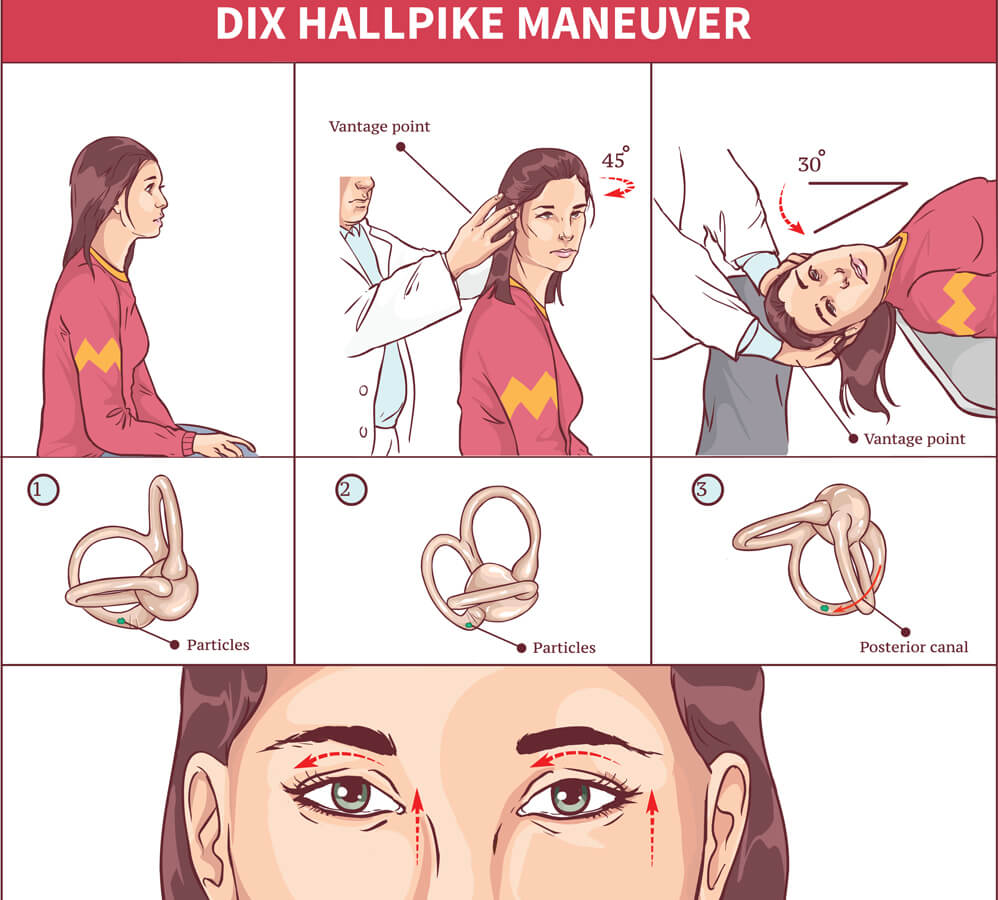
Dix-Hallpike testing is available in our Gainesville office. This maneuver is used to check for a common type of vertigo called benign paroxysmal positional vertigo, or BPPV. Vertigo is the sudden feeling that you or your surroundings are spinning.
Your inner ear includes three small structures called semicircular canals that are a part of your balance system. Tiny calcium crystals live inside these canals at particular places. BPPV occurs when some of these tiny crystals breaks free from the canal wall and moves to another location in the canal. This can cause vertigo or a sensation of moving when you are not.
Common symptoms that accompany the spinning include:
Symptoms typically occur when moving your head up and down or getting in and out of bed. They typically last less 30-90 seconds.
Your Doctor of Audiology will ask you to sit on an exam table with legs stretched out on the table. They’ll turn your head 45 degrees to one side, then will help you lie back quickly so your head hangs slightly over the edge of the table.
This position and movement may cause symptoms of vertigo, as it may make the loose crystals move around. Your audiologist will watch your eyes to see how they move and will ask you about vertigo symptoms.
After a few minutes to recover, testing is repeated with your head turned to the opposite side.
If the Dix-Hallpike test didn’t trigger any symptoms, your audiologist may refer out for additional testing to figure out what’s causing your dizziness.
If it did, your audiologist may move your head in certain positions to help put the crystals back into place. You will be provided at-home instructions for aftercare.
Symptoms following treatment will gradually improve over the next couple weeks. Recurrence is possible in approximately 15% of cases, and additional treatment can be requested. Recurrence after years following the first episode is also common.